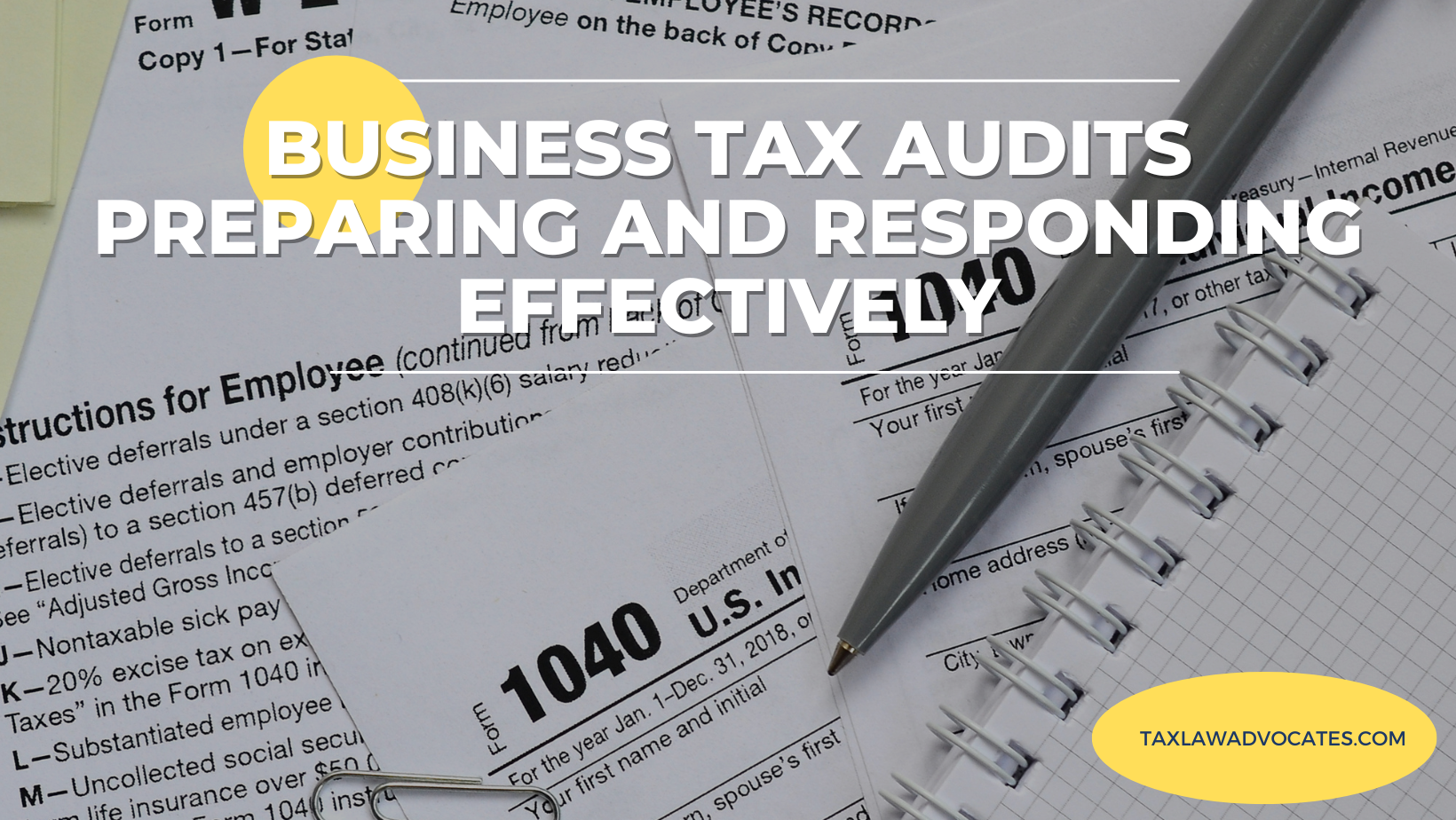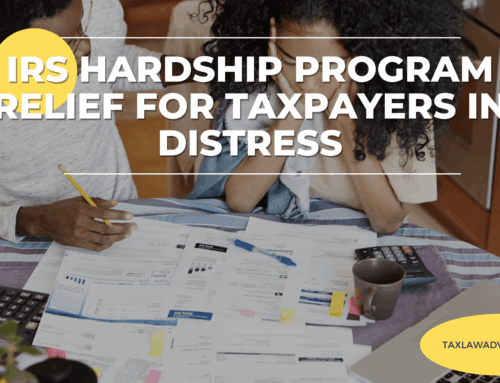An IRS business tax audit can feel like a high-stakes situation—but with the right preparation and expert support, it doesn’t have to be a nightmare. Whether your company has received a notice of audit or you’re proactively planning for potential scrutiny, understanding what to expect and how to respond is essential for protecting your business and financial health.
At Tax Law Advocates, we help business owners nationwide navigate the audit process with confidence and clarity. Below is a detailed guide on how to prepare for and respond to a business tax audit effectively.
What Triggers a Business Tax Audit?
The IRS doesn’t randomly audit businesses. Instead, certain red flags and risk indicators can make your company more likely to be audited. Common audit triggers include:
- Large discrepancies between income and deductions
- Excessive deductions for travel, meals, or entertainment
- Significant year-over-year revenue changes
- Cash-intensive business operations
- Employee misclassification issues
- High net profit margins without supporting documentation
While being selected for an audit doesn’t necessarily mean you’ve done something wrong, it does mean the IRS wants to take a closer look at your books and records.
Types of IRS Business Audits
The IRS conducts several types of business audits, each with its own level of scrutiny:
Correspondence Audit
This is the least invasive type. The IRS sends a letter requesting specific documentation (e.g., receipts or explanations of deductions). These can often be resolved by mail.
Office Audit
You may be asked to bring documentation and meet with an IRS auditor at a local IRS office. These are more detailed and may include questions about your entire return.
Field Audit
This is the most comprehensive audit. An IRS agent visits your place of business to examine your books, financial statements, and operations. Field audits are often triggered by significant compliance concerns.
How to Prepare Before an Audit
Proper preparation is your best defense in an audit. Here’s how to get started:
Organize Your Records
Ensure that all financial documents are in order, including:
- Income statements and balance sheets
- Bank and credit card statements
- Payroll and employee classification records
- Expense receipts (especially for travel, meals, vehicle use)
- Invoices and contracts
- Prior year tax returns
The IRS expects organized, verifiable records that support every item on your tax return.
Review Your Tax Return
Before the audit, thoroughly review the tax return in question. Pay special attention to areas with complex calculations or unusually high deductions. If you find errors, discuss potential corrective actions with your tax advisor.
Identify Potential Issues
Be proactive by identifying areas of vulnerability. For example, if you deducted a home office or claimed unusually high business mileage, make sure you can fully substantiate those claims with logs and receipts.
Understand IRS Audit Procedures
Knowing how an audit works can reduce anxiety and help you stay in control. The IRS will typically:
- Send a letter detailing what year is being audited and what documents are needed.
- Schedule a meeting (for office or field audits).
- Review records and ask follow-up questions.
- Issue findings in a report, which you can agree with or dispute.
How to Respond During an Audit
Your conduct and communication during an audit can impact its outcome. Here are best practices to keep in mind:
Stay Calm and Professional
IRS auditors are trained professionals—not adversaries. Remain polite, calm, and cooperative throughout the process.
Only Provide What’s Requested
Do not volunteer extra documents or explanations unless asked. Limit your responses to the specific requests made by the auditor.
Don’t Guess
If you don’t know the answer to a question, say so. Guessing or providing incorrect information can harm your credibility and cause more issues.
Have Representation
You have the right to be represented by a qualified tax professional, such as an attorney, CPA, or enrolled agent. Having representation ensures your rights are protected and helps level the playing field.
Post-Audit Outcomes and Options
Once the IRS completes its review, you’ll receive a report of their findings. There are typically three possible outcomes:
- No Change: The IRS accepts your return as filed.
- Agreed Change: You agree with the proposed changes and pay any additional tax due.
- Disagreed Change: You disagree with the findings and wish to challenge them.
If you disagree, you have the right to appeal. Tax Law Advocates can represent you in appeals or, if necessary, in U.S. Tax Court.
How to Prevent Future Audits
While you can’t eliminate audit risk entirely, you can reduce your chances of being audited by:
- Keeping accurate and complete records
- Filing returns on time and paying taxes owed
- Avoiding aggressive tax positions without clear documentation
- Consulting a tax professional before making complex or unusual deductions
- Regularly reviewing your books for errors or inconsistencies
Why You Should Partner with Tax Law Advocates
Navigating a business audit without experienced legal representation can be risky and stressful. At Tax Law Advocates, we specialize in:
- Representing clients before the IRS during audits
- Preparing documentation and responding to audit notices
- Negotiating settlements and payment plans
- Filing appeals when appropriate
- Advising on audit risk reduction strategies
With decades of experience and a proven track record, we provide professional representation that protects your interests and ensures a smoother audit process.
Get Trusted Help Today
If your business has received an IRS audit notice—or if you suspect you may be audited soon—don’t wait. Call Tax Law Advocates at 855-612-7777 today for a confidential consultation.
We’ll help you understand your audit, organize your records, and represent you throughout the process. With our team by your side, you can approach your audit with confidence and peace of mind.






